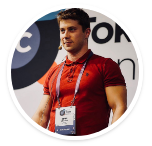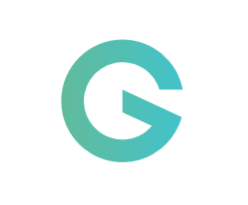First Platform for OPEN-SOURCE Projects Monetization
Yegor Maslov
Founder & CIO

Yegor combines an excellent technical background and experience of running own software business. Key facts and achievements:
– Developed Heliard, a popular Russian task tracker and project analytics system
– Won several hackathons organized by Google
– Created an AI-based system of IT projects audit
– Created a multiplatform loan management system for retail sector
– Automated project management in a ~50 developers team
Q: So here we are with Yegor Maslov, CEO of the OpenGift platform. Yegor, can you tell us a bit about your project? What are you doing?
A: We are a marketplace where companies can cut a significant part of their software development costs by collectively funding development of open source software. OpenGift is also a place where they can get documentation, supporting and set-up services, and generally everything they might need to use an open source software tool in an organizational environment.
Q: Why are you targeting organizations?
A: This is where the money is. Imagine a bunch of developers standing in a circle and handing over a one dollar banknote to each other and you’ll get quite a precise idea what happens with open source software funding right now. Developers donate to projects of other developers, so they could donate to some other developers. We want to break this circle, and to let money into the open source ecosystem. Most of organizations use open source software, even if they are not aware of it, so they are natural customers. But that’s only the beginning.
Q: What’s next?
opengift ico platform
A: In a long run, OpenGift will be a tool for people like you and me. What feature would you like to have in you Facebook?
Q: It would be something about searching of messages in chat. Last time it had taken an hour to find a message I needed. But Facebook is not an open source project!
A: With sufficient funding open source projects will come up with something better than Facebook within a few years. In general, solving this Great Open Source Monetization Puzzle will trigger domino’s effect of disruptive changes: more developers will start seriously working on open source projects, so new great free software products will emerge and traditional software providers will have to reconsider their business models. It will change not only the software market, but a labor market as well – people will be able to join one of decentralized open source organizations instead of working in a traditional company. It will enhance our personal freedom as traditional organizations will be loosing their ability to impose standards of thinking and behavior.
Q: You mentioned open source organizations – does OpenGift has anything to do with that?
A: Yes, that’s one of the core elements of our vision. We provide a technological foundation for such organizations.
Q: How is that?
A: Let’s say I’ve developed an open source software tool. You come to me and say – ‘hey, what a great tool you have, let me help you to find customers’. How could we settle the deal? If it was a traditional start-up, we’d found a company, and you’d be my non-tech cofounder. But I am a developer, I don’t want to engage in stuff like that, it least right the moment. So instead I can easily put our agreement into smart-contract with OpenGift.
Q: Does that mean that as your companion I’ll automatically receive my share of profits for our joined venture?
A: Yes
Q: If so, how can I make sure you are not hiding any profits from me?
A: As long as we are talking about open source projects, it all can be handled with our platform. Remember, people are not buying our product, they buy an opportunity to change it. As long as we are providing such an opportunity via OpenGift, there is no way to hide something. All transactions are instantly getting recorded in the blockchain.
Q: What if you are not sure that my contribution will help you out?
A: Since it’s a decentralized system, there is no way I could change our initial agreement without your confirmation. But at the very beginning we can structure the deal in way that eliminates such risks. I can give you 0,5% each month, or, if you promoting separate type of service, say, supporting or education, you can set up a project of your own and give me a share in your profits. The ways of structuring business relationships are flexible.
Q: Let’s add some personal perspective. How did it occur to you that you might create a product like that?
A: I was nurturing the idea throughout September and October 2017. By the end of October I figured out the key principles. I discussed it with guys with whom we built Heliard, and they added a few important details to the initial plan. By the end of November we were set to start.
Q: So you built the OpenGift’s core in about two months?
A: Something like that
Q: Why such a rush?
A: We wanted to market test our idea to make sure we are going in a right direction. So it just makes sense to build an alpha version of your product, and to offer it to your potential customers. If they use it and ready to pay for it despite all the imperfections typical for early versions of any product, you are on a right way. I believe it’s a more honest way to do business. Once you proved your idea, you can go to investors.
Q: Fair enough. Tell me a bit about your previous project.
A: It was a commercially successful task tracker and project analytics system. We launched it in early 2014 without any external funding and by the middle of 2017 we had more than 600 clients. Once we moved on to OpenGift we decided to make Heliard free and integrate it in our new product.
Q: So you already scheduled your ICO campaign. How much are going to rise and why you need the money?
A: Hardcap is $500,000 for pre-sale, and $12 million for the main sale. We need this money to scale up the project, and to add some important functionality. The biggest part of the budget will go to a non-profit foundation devoted to supporting open source projects on our platform.
Q: What is your token functionality?
A: It’s an internal currency in our ecosystem; one could make donations or purchase services with it. Actually, that’s quite a popular scheme of work that many projects try to implement, but it has some inherent disadvantage: by default you should ask your clients to buy tokens before they can do anything on your platform, so the process become a too bothersome…
Q: How do you deal with that?
A: We introduced a new role into our ecosystem – an internal exchange. There’ll be multiple independent exchanges. It allows one can make a donation in any currency, whether fiat or crypto, in the donated amount will be converted to our internal currency.
Q: It should lead to additional costs of using your system, shouldn’t it?
A: There definitely should some spread between buy and sell price for exchanges to exist, but we are going to take care it won’t be large. We shall host, at least on the initial phase of project development, an own zero-spread exchange.
Q: What about other costs of using your platform?
A: It’s completely free.
Q: Heh, but users have to pay for gas.
A: Luckily, they do not. We are on HyperLedger.
